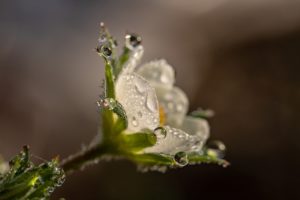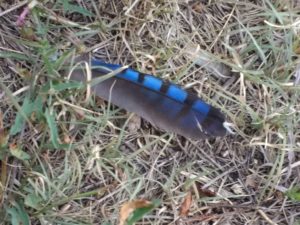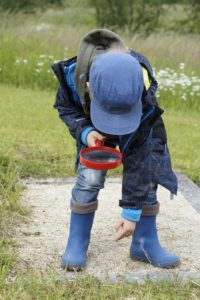By Deb Matlock
“Look deep into nature, and then you will understand everything better.”
Albert Einstein
Let’s get real. The natural world is amazing. We are surrounded by mysteries and miracles every second of every day. Each bird that takes flight from a nest half its size, every spider who weaves a web across a distance so vast it seems to defy all laws of physics, every flower that bursts forth from the tiniest seed are but just a few examples of the truly incredible world of which we are so very lucky to be a part.
 I have worked as a professional naturalist in Colorado for 25 years and I still feel like I am barely scratching the surface of my ecological knowing. The more I learn, the more questions I have. The more plants I can identify according to their field guide names, the more plants I see that I am sure I haven’t seen before. Every little tidbit I learn about the majesty of clouds opens a whole new horizon of awareness and wonderings. This is one of the things I love most about the natural world…the more we know, the more we know we do not know…the mystery can pull us for our entire lives if we wish!
I have worked as a professional naturalist in Colorado for 25 years and I still feel like I am barely scratching the surface of my ecological knowing. The more I learn, the more questions I have. The more plants I can identify according to their field guide names, the more plants I see that I am sure I haven’t seen before. Every little tidbit I learn about the majesty of clouds opens a whole new horizon of awareness and wonderings. This is one of the things I love most about the natural world…the more we know, the more we know we do not know…the mystery can pull us for our entire lives if we wish!
Because learning about the wild, natural world is such a glorious dance with the Great Mystery, it seems to me that developing our knowledge and familiarity of the wild places and the wild beings we share our days with is of utmost importance to our spiritual journeys…whatever flavor those journeys may take. To me, apprenticing to the plants, animals, trees, weather, rivers, rocks, canyons, etc. is a source of deeply empowering knowledge and inspiration. It also helps to keep me firmly grounded in my mortal life as a physical being.
So much nature connection work is about deep sensory awareness and place connection on emotional and spiritual levels. Indeed, this has been the heart of my own journey and work for decades. I have seen pure magic happen as people explore their ecological selves in relation to the wildness around them. I also know that, without understanding our places from a biological, physiological, and pure natural history standpoint, we can miss so much often to our detriment.
Knowing the beings and rhythms who share our places can be a matter of life and death for sure. For example, here in Colorado, lightening can be dangerous player on a beautiful summer hike in the mountains. It is critical to understand weather patterns and lightening safety to be able to care for ourselves and others. Rattlesnakes and poison ivy are also very important members of the ecosystem I call home. My understanding and awareness of these beings is key to keeping myself, my dogs, and any clients I am working with outdoors as a safe as possible. To not understand the realities of the ecosystem where I live and work would be remiss at best and life threatening at worst.

In addition to the very practical and critical safety awareness naturalist knowledge can bring, this skill set can also help us to comprehend the realities of life in the natural world. Predator and prey activity is occurring everywhere, all the time. This is a deeply important part of the mystery. Food scarcity, weather issues, injuries, territorial defense…all these things happen to the wild animals around us with regularity. I have been brought to my knees seeing a hawk pursue and catch a rabbit, flooding me all at once with awe, gratitude, joy, and sadness. This swirling dance of emotions is indeed part of the Great Mystery and made more obvious to me as I continue to develop my own naturalist skills. And there are so, so many ways we can engage our inner naturalists!
 Below are just a few ways we can work on our naturalist skills:
Below are just a few ways we can work on our naturalist skills:
- Attend nature education programs at our local nature center or environmental organizations, libraries, and open space and parks departments. Many organizations offer free or low-cost programming on various topics for the whole family.
- Keep a daily or weekly nature journal of beings you see in your yard or neighborhood. Keep track of the ones unfamiliar to you and look them up in a field guide or online to learn more.
- Pick one spot outdoors to visit very regularly. Observe changes and make a point to learn all the plants and animals you see in this spot.
- Join a local Master Naturalist volunteer training program.
- Watch nature documentaries.
- Choose a weekly theme (i.e., birds, weather, flowers, etc.) and focus on that one part of the natural world for a week. Pay extra close attention, reference field guides, record your observations, and be sure to include any deep inspirations that come along with your theme.
The lifelong-learning quality of developing our naturalist skills ensures we will never be bored. We will never “know it all.” If we allow ourselves to remain open and in the mind of a beginner, we will never cease to be amazed by the incredibly world we get to call home. We will indeed dance with the Great Mystery for all our days.
Deb Matlock grew up in the mountains of Colorado and is deeply committed to nurturing the connection between people, animals, earth, and spirit. She has spent twenty-five years working as a professional environmental and humane educator and naturalist. Additionally, Deb offers shamanic-style spiritual guidance, animal communication, nature connection workshops, and retreats through her business, Wild Rhythms. She is passionate about helping people find connection and deep spiritual meaning in their lives and in the places where they live. Deb holds a Master of Arts in Environmental Education from Prescott College and is pursuing her doctoral degree in environmental studies at Antioch University New England.
You are welcome to join the Wild Rhythms email list to be notified of future blog posts!
Interested in exploring sacred connection to earth, animals, and spirit? Join the Wild Rhythms Facebook group at https://www.facebook.com/groups/SacredConnection/
For more information about the work of Deb Matlock and Wild Rhythms, please visit https://wild-rhythms.com/
